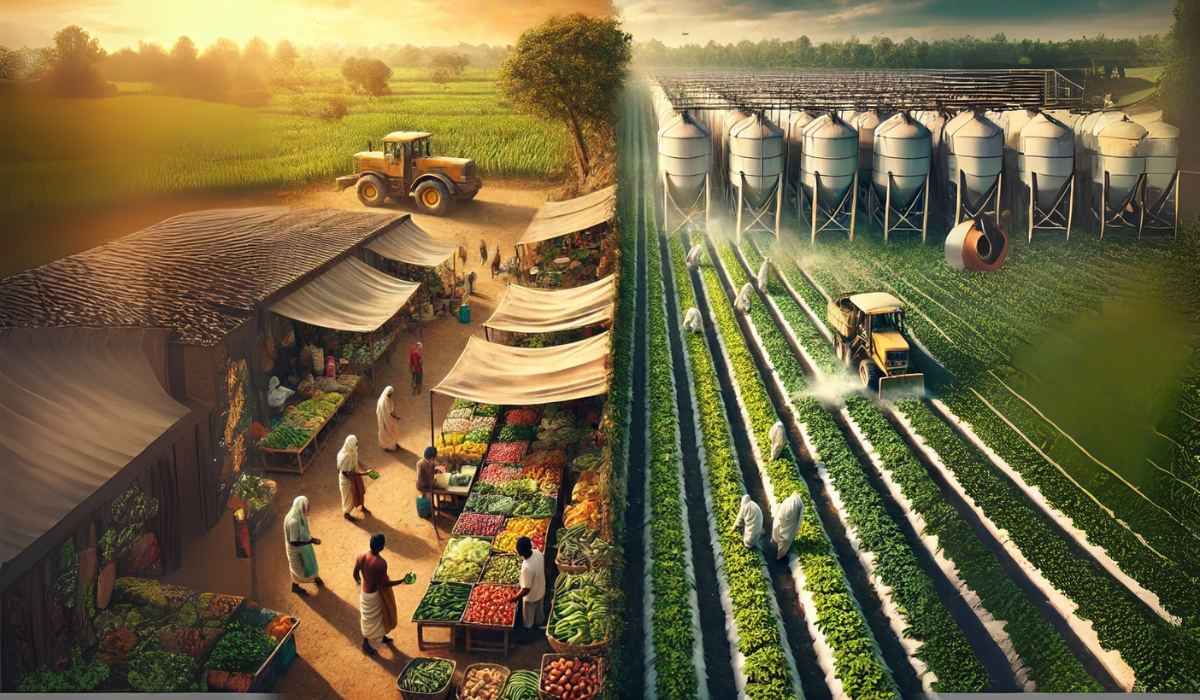The world is facing an unprecedented food crisis—one that threatens not just our plates but also our health, environment, and future generations. The way we produce, distribute, and consume food is pushing our planet to its limits, leading to widespread food insecurity, malnutrition, and environmental degradation. Yet, amidst these challenges, we hold the power to drive change through sustainable eating habits.
The Shocking Reality of Our Global Food System
- Rising Food Insecurity
Over 800 million people go to bed hungry each night, while nearly one-third of all food produced globally is wasted. This paradox highlights the inefficiencies and inequalities in our food system. - Controlled Farming & Chemical Dependency
To meet the rising demand for food, large-scale farms rely on controlled farming techniques, including excessive use of pesticides, synthetic fertilizers, and genetically modified crops. While these methods increase yield, they deplete soil nutrients, contaminate water sources, and expose consumers to harmful chemicals linked to hormonal imbalances, cancers, and metabolic disorders. - Pesticides & Health Risks
A staggering 385 million cases of pesticide poisoning occur globally each year, with India being one of the most affected countries due to widespread use of banned and highly toxic chemicals. Studies show that prolonged exposure to pesticides is linked to neurodegenerative diseases, reproductive issues, and weakened immunity. - Climate Change & Agriculture
Industrial agriculture is a leading contributor to climate change, accounting for nearly 30% of global greenhouse gas emissions. The expansion of farmland leads to deforestation, loss of biodiversity, and depletion of freshwater resources. - Soil Degradation & Loss of Nutritional Value
Intensive farming has stripped the soil of essential nutrients, resulting in nutrient-deficient crops. Today’s fruits and vegetables contain 30–50% fewer vitamins and minerals than they did 50 years ago, affecting our overall health and well-being.
The Impact on Our Health
- Increased Gluten Sensitivity & Digestive Issues
Due to controlled farming, modern wheat contains much higher levels of gluten than traditional varieties. This increase is linked to a rise in gluten intolerance, digestive disorders, and autoimmune conditions like celiac disease. - Declining Nutritional Quality of Foods
With soil losing its essential nutrients, crops grown today have fewer vitamins, minerals, and antioxidants than those grown decades ago. This directly contributes to rising cases of malnutrition and deficiencies. - Higher Exposure to Hormone-Disrupting Chemicals
Pesticides, fertilizers, and food additives contain endocrine disruptors that interfere with hormone regulation, leading to problems such as PCOS, thyroid imbalances, and reproductive issues. - Rising Food Allergies & Sensitivities
The excessive use of preservatives, artificial flavors, and chemical treatments in processed foods has been linked to higher rates of food allergies, gut inflammation, and metabolic disorders. - Increased Risk of Chronic Diseases
Highly processed foods and excessive chemical exposure in our diet contribute to the rise of diabetes, obesity, cardiovascular diseases, and cancers.
How Can We Eat More Sustainably?
- Choose Local & Seasonal Produce
Locally grown, seasonal foods are not only fresher and more nutritious but also reduce the carbon footprint associated with long-distance transportation. - Support Organic & Regenerative Farming
Organic farming minimizes pesticide use and promotes soil health, while regenerative agriculture focuses on restoring ecosystems and improving biodiversity. - Reduce Food Waste
Simple actions like meal planning, proper storage, and composting can significantly cut down food waste, easing pressure on food production systems. - Diversify Your Diet
Eating a variety of grains, legumes, and vegetables supports biodiversity and reduces overdependence on monoculture farming, which depletes soil nutrients. - Limit Processed & Ultra-Processed Foods
Processed foods contribute to both health issues and environmental harm due to their reliance on industrial farming, chemical preservatives, and excess packaging waste.
A Call to Action
The global food crisis is not a distant problem—it affects every one of us. The choices we make today will determine the future of food security, public health, and the environment. By adopting sustainable eating habits, we can contribute to a healthier planet, a fairer food system, and a stronger, more nourished future.
Are you ready to be part of the solution? Start small, choose wisely, and make every meal count towards a more sustainable world.

